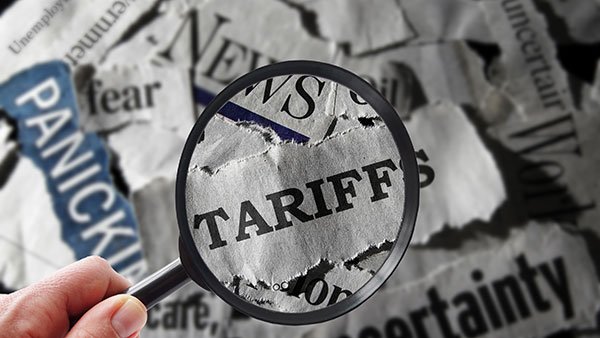By Eva Richardson | The Logistic News
April 8, 2025
As the latest round of U.S. tariffs sends ripples across the global trading system, companies are scrambling to rewire their supply chains to preserve margins and maintain resilience. With cross-border costs climbing and trade compliance under a microscope, the new tariff paradigm is not just a policy shift—it’s a catalyst for transformation in logistics strategy.
From nearshoring moves to financial safeguards, here’s how businesses are responding to the pressure.
1. Diversifying Beyond China: The ‘China +1’ Surge
The once-dominant model of China-centric sourcing is giving way to more flexible strategies. Companies are increasingly pursuing a ‘China +1’ approach, adding manufacturing capacity in Vietnam, India, and Mexico to hedge against tariff shocks. Some are even shifting partial production to higher-cost domestic or regional suppliers to increase control and reduce risk.
“We’re no longer asking where it’s cheapest to produce—but where it’s safest,” said a global sourcing executive from a major electronics manufacturer.
2. Inventory Rebalancing: Holding More, Not Less
While the lean inventory model dominated for years, the tariff environment is reversing course. More companies are stockpiling critical goods and components, building buffer stock to weather customs delays or cost volatility.
This shift comes at a financial cost, tying up working capital—but it’s viewed as necessary insurance in a high-risk trade climate.
3. Strategic Product Redesign
In some sectors, product engineers are playing a new role in tariff mitigation. By redesigning goods to include more local content or alternative materials, firms can reduce import exposure and potentially change a product’s tariff classification entirely.
This technique requires cross-functional alignment between logistics, procurement, and R&D teams, but it’s becoming an increasingly common part of the tariff response playbook.
4. Enhancing Compliance and Governance
Trade compliance is under tighter scrutiny than ever. Regulatory bodies are cracking down on transshipment, mislabeling, and other efforts to skirt tariffs. As a result, companies are increasing internal audits, requesting origin certifications from suppliers, and leaning on customs brokers and legal counsel for classification reviews.
Missteps can mean steep penalties—or worse, reputational damage.
5. Rethinking Financial Reporting and Contracts
The financial implications of tariffs are also showing up in boardrooms. Auditors are insisting on transparency around duty costs, which now must be reflected in inventory valuations and profit forecasts.
Simultaneously, firms are reviewing commercial contracts to account for new tariff risks, with some inserting force majeure clauses and trade disruption insurance requirements.
6. Governance at the Top: Board-Level Engagement
Tariff strategy is no longer the sole domain of logistics or finance departments. Boards and audit committees are demanding comprehensive scenario planning and mitigation strategies. This top-down involvement reflects the systemic risk that tariffs now pose to global operations.
Conclusion: From Disruption to Strategic Advantage
The global tariff shake-up is forcing companies to rethink their operations not as isolated cost centers but as interconnected ecosystems that require agility, foresight, and cross-functional collaboration.
Those who act proactively—not just reactively—stand to turn disruption into competitive advantage.
For deeper analysis of trade disruption, compliance strategies, and supply chain resilience, follow Eva Richardson and The Logistic News on LinkedIn and Google News.























